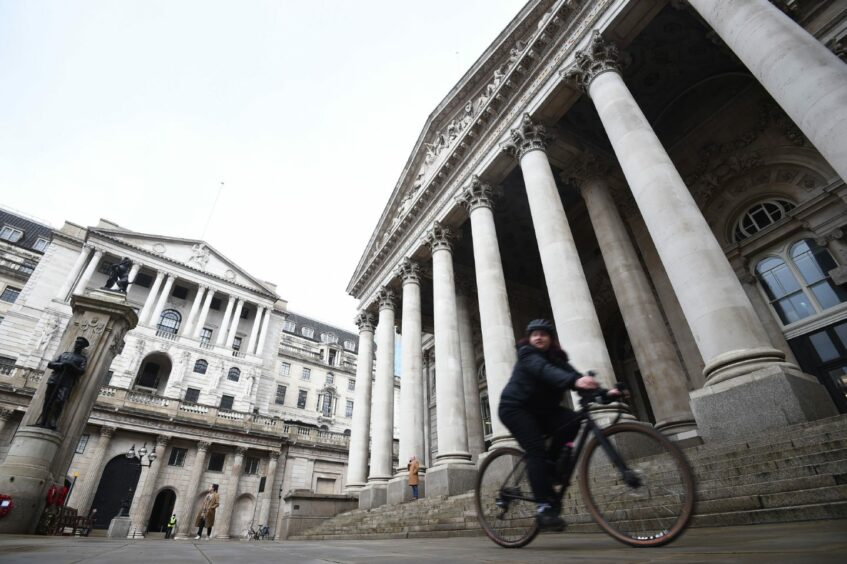North and north-east homeowners are facing another increase in their monthly mortgage payments after the Bank of England announced a further rise in interest rates.
The Bank has lifted rates by another 0.25 percentage points to 0.75% despite soaring household bills and the Ukraine crisis casting a shadow over the global economic outlook.
Monetary policy committee members voted by a majority of eight to one to increase the base rate.
Announcing the decision, the Bank said: “Given the current tightness of the labour market, continuing signs of robust domestic cost and price pressures, and the risk that those pressures will persist, the committee judges that an increase… of 0.25 percentage points is warranted.”
It is the third consecutive monthly increase since December, when the central bank lifted the base rate from the record low of 0.1% introduced at the start of the pandemic.
The increase will certainly have an impact on homeowners with a mortgage as lenders look to pass on the rise to borrowers.”
Darren Polson, head of mortgage operations, Aberdein Considine.
Many leading economists are predicting a further 0.25 percentage point rise in May, which would take rates to 1%.
Higher mortgage payments are yet another squeeze on household budgets that are already facing swingeing increases to their monthly energy, petrol and grocery bills.
Darren Polson, head of mortgage operations at law firm Aberdein Considine, said the latest rise in interest rates would add another £17 per month to an average mortgage in the north and north-east.
Mr Polson said: “The decision to raise interest rates will have come as little or no surprise as the Bank of England seeks to deal with price pressures that saw inflation rise to over 5% in December.
“To put this into some perspective, the Bank has a target to keep inflation at 2% over a two to three-year period.
“The increase will certainly have an impact on homeowners with a mortgage as lenders look to pass on the rise to borrowers, and it will affect those on both variable and tracker rates in the first instance.
“However, those with a fixed rate which is coming to an end as well as anyone who might want to remortgage will also likely find any new deals to be less competitive than the one they currently have.”
He added: “With the average variable rate in the UK at 2.1% and average payments of £704 per month, the 0.25% rise could result in borrowers paying £17 per month more.
“Whilst the increase in monthly mortgage payments might not seem substantial in themselves, you only have to look at prices at the petrol pump breaching £1.60 a litre to see that pretty much every aspect of our lives is getting more expensive by the day.”
Borrowers have become accustomed to relatively low and steady mortgage rates in recent years.
Shop around for deals
Higher rates as well as growing energy and supermarket prices mean cost of living concerns will only intensify, Mr Polson said.
But, on a brighter note, he added: “There remain a huge number of mortgage deals available and it is still possible to secure some decent rates.
“While Google could be a great friend as you search for deals, the best option would to seek some advice from an independent mortgage broker.”
Suren Thiru, head of economics, at the British Chambers of Commerce said the Bank’s decision, while expected, looked “ill-timed” against a backdrop of growing domestic and global headwinds, including the Ukraine crisis.
Mr Thiru added: “Higher interest rates will do little to curb the global causes behind this inflationary surge, and risk intensifying the headwinds facing the UK economy by damaging confidence and deepening the financial squeeze on consumers and businesses.”
Trades Union Congress head of economics Kate Bell said: “In the midst of a cost-of-living crisis, this is the last thing hard-pressed families need.”



